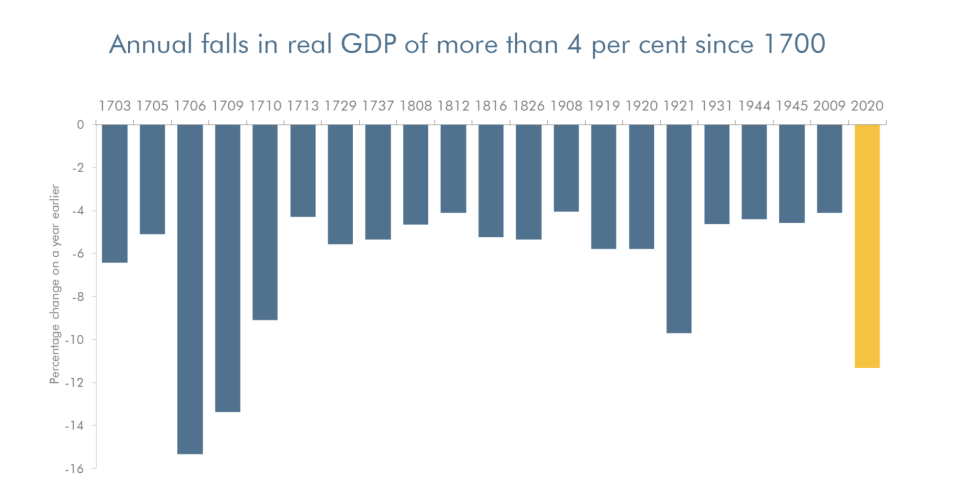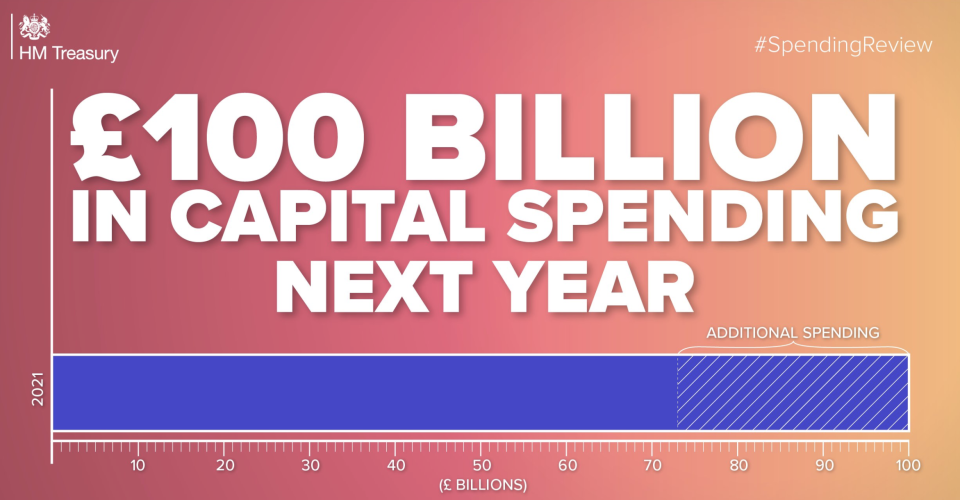Chancellor Rishi Sunak warns 'economic emergency has only just begun'
Watch: Chancellor: Economic damage from Covid-19 pandemic likely to be lasting
UK chancellor Rishi Sunak warned that “economic emergency” caused by COVID-19 was only just beginning as he delivered the government’s spending review in parliament on Wednesday.
“Our health emergency is not yet over and our economic emergency has only just begun,” the chancellor said.
It came as the Office for Budget Responsibility forecast that the UK economy will contract by 11.3% in 2020, the biggest fall in output in 300 years.

The economy is not expected to recover to pre-pandemic until the end of 2022 and permanent “scarring” means the economy will be smaller in 2025 than economists had forecast at the start of this year.
Unemployment is expected to peak at 2.6 million next year and remain above pre-pandemic levels until at least 2024.
Sunak said his priority was to “protect people’s lives and livelihood” and said the government had so far spent £280bn on its COVID-19 response. The state is on track to borrow a total of £394bn this year, equivalent to 19% of GDP.
The details came as the chancellor set out government spending plans for the next 12 months in a truncated spending review.
Spending reviews usually set out budgets for government departments for the next four years. Sunak delivered just a 12 month outlook as a result of the COVID-19 pandemic.
The chancellor said the departmental spending will be £540bn next year, an increase of 3.8%.
Sunak also used the occasion as a mini-budget, setting out new spending pledges on policies.
He promised a “once in a generation investment in infrastructure” and investment in schools, hospitals, and roads. The chancellor said the government would spend £100bn on projects next year.

Many of the main announcements had been trailed in the press ahead of the speech, including plans for £3bn ($3.93bn) in additional funding for the NHS, the launch of a new national investment bank to help “level up” the regions, and more than £4bn to help unemployed people back to work.
The announcements are the latest in a slew of spending by the government this year. The spending spree has pushed national debt above £2tn for the first time in post-war history.
The sky-high and rising public debt has led to speculation about how and when the chancellor will balance the book.
“We have a responsibility, once the economy recovers, to return to a sustainable fiscal position,” the chancellor said on Wednesday.
Plans for a public sector pay freeze were trailed in the press ahead the spending review. Sunak announced a “targeted” pay freeze, with the NHS and lowest paid public sector workers exempted.
“While the government is making the difficult decision to control public sector pay, the majority of public sector workers will see their wages increase next year,” the chancellor said.
The chancellor also announced that the UK’s foreign aid budget will be cut, saying it was “difficult to justify” given the “highest peacetime levels of borrowing on record”.
WATCH: What is the budget deficit and why does it matter?

 Yahoo Movies
Yahoo Movies 